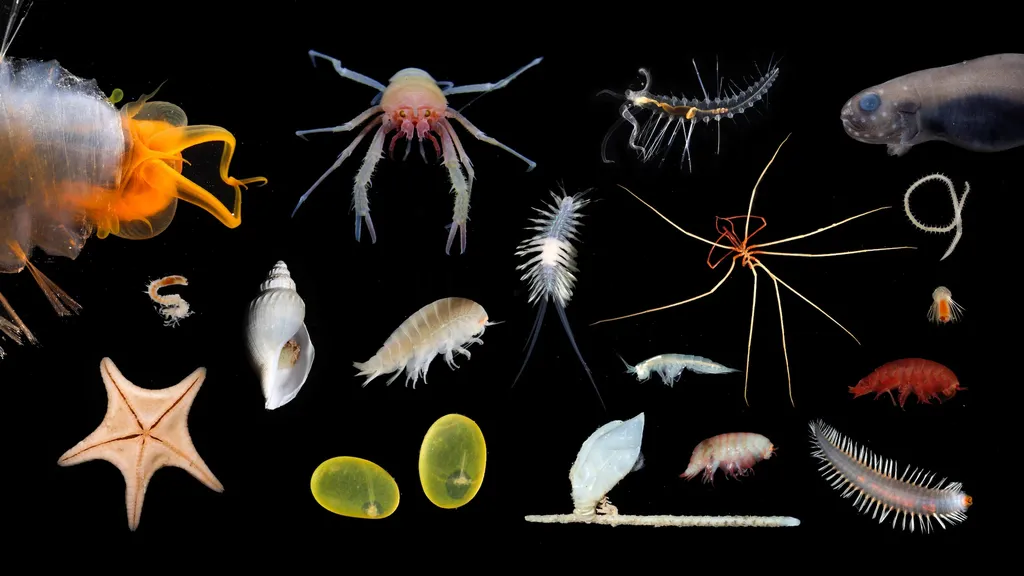In the abyssal depths of the Southern Ocean, a recent expedition has unveiled a trove of new species, offering a glimpse into the vast, underexplored biodiversity hidden beneath the waves. Among the discoveries are a carnivorous “death ball” sponge and iridescent scale worms, adding to the growing list of known marine life forms.
The expedition, conducted by the Nippon Foundation-Nekton Ocean Census in collaboration with the Schmidt Ocean Institute, ventured into the Southern Ocean’s depths, reaching as far down as 12,000 feet. The team explored a variety of extreme environments, including trenches, dormant volcanoes, and hydrothermal vents. Their efforts yielded thousands of specimens and photographs, with 30 new species confirmed so far.
One of the most intriguing discoveries is a small, round sponge belonging to the genus Chondrocladia. This carnivorous sponge, dubbed the “death ball,” is covered in tiny hooks that trap prey, showcasing the unique adaptations of deep-sea life. Additionally, the team found iridescent scale worms of the genus Eulagisca, which are armored and emit a faint blue glow. Other new species include various types of sea pens, sea stars, bivalves, and black corals.
The expedition also uncovered new coral gardens and captured the first-ever footage of a juvenile colossal squid near the South Sandwich Islands. In one notable exploration, scientists investigated a section of the seafloor exposed by the calving of a massive ice shelf on the Antarctic Peninsula. They found a diverse array of sea life that had previously been sealed beneath over 400 feet of ice.
The implications of these discoveries extend beyond the realm of marine biology. The agriculture sector, for instance, could benefit from the identification of new species that may offer novel solutions to pest control or crop improvement. The unique adaptations of deep-sea organisms, such as the carnivorous sponge’s trapping mechanisms, could inspire innovative agricultural technologies.
For investors, the exploration of the ocean’s depths presents opportunities in biotechnology and pharmaceuticals. Many marine organisms produce compounds with potential medical applications, and the discovery of new species could lead to breakthroughs in drug development. Additionally, the study of deep-sea ecosystems can provide insights into sustainable practices, benefiting industries that rely on marine resources.
The Southern Ocean remains a vast, under-sampled frontier, with an estimated 2 million species yet to be identified. The Nippon Foundation–Nekton Ocean Census aims to uncover 100,000 new ocean species, highlighting the immense potential for discovery and innovation. As scientists continue to explore the ocean’s depths, the agricultural sector and investors alike stand to gain from the wealth of knowledge and resources hidden beneath the waves.

